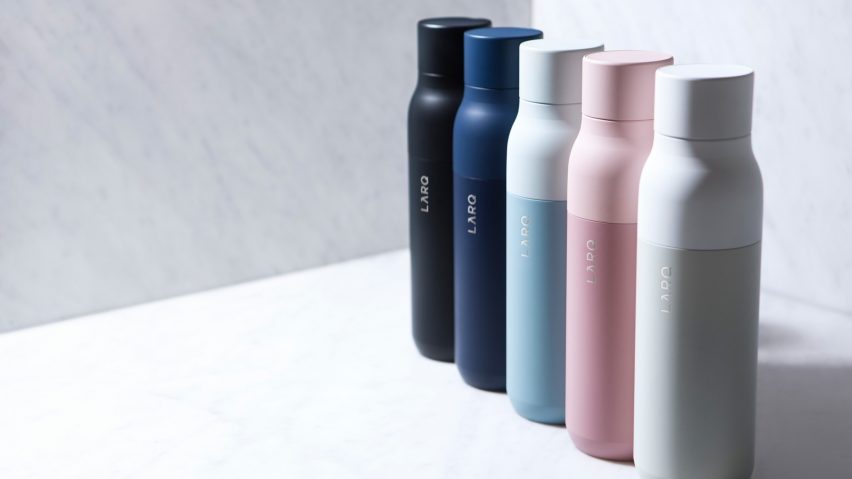Smart water bottle-maker Larq this week announced that it has been acquired by filtration giant, Brita. More specifically, Brita GmbH, the German company founded in 1966, which spun off and sold its North/South American wing to Clorox in 1988.
Brita GmbH maintains the brand in the rest of the world, but it currently is barred from selling products under its own brand name in the Americas. Among other things, this acquisition provides the corporation a clear reentry point into the former market under an existing — if not widely known — brand.
Bay Area-based Larq, which was founded in late-2017, is best known for its line of smart water bottles, which utilize a UV light built into the cap in order to reduce the bacteria that accumulates inside the dark, damp object. The company has since expanded to a water pitcher, which combines the UV light with a standard water filtration more in line with what we’ve come to expect from Brita.
“They wanted to expand back into North America on their B2C side,” Larq founder and CEO Justin Wang tells TechCrunch. “Larq provided a natural extension of that, geographically. But also, from a premiumization and digital transformation perspective, that business is traditionally 70-80% offline. They’re in the process of doing a major digital transformation and we’re exactly the opposite. Seventy to 80% is online for us.”
Larq’s retail footprint is modest, with its product available in ~1,000 brick and mortar stores. While it currently has no footprint in the U.S., Brita GmbH has both huge reach in the international market and the kind of retail expertise that gets its foot in the door. Larq, meanwhile, would be spearheading online sales efforts.
Brita U.S. (Clorox) will remain the elephant in this specific room for the foreseeable future, but the company’s one-time parent is gearing up for an interesting battle — one in which it can’t use its own ubiquitous name.
Wang believes that both Larq and its new parent have the upper hand in terms of innovation, however.
“I think Clorox fundamentally runs that business more as a cash cow,” he says. “That’s what they do. Clorox acquires businesses, expands their footprint on store shelves and they squeeze every dollar they can out of it. Germany has depended more on innovating filters and their business models.”
Larq will maintain its current product portfolio, while looking to expand its offerings in ways that marry its technology with Brita. That will likely entail a continued focus on things like app connectivity and hydration tracking.



![[CITYPNG.COM]White Google Play PlayStore Logo – 1500×1500](https://startupnews.fyi/wp-content/uploads/2025/08/CITYPNG.COMWhite-Google-Play-PlayStore-Logo-1500x1500-1-630x630.png)